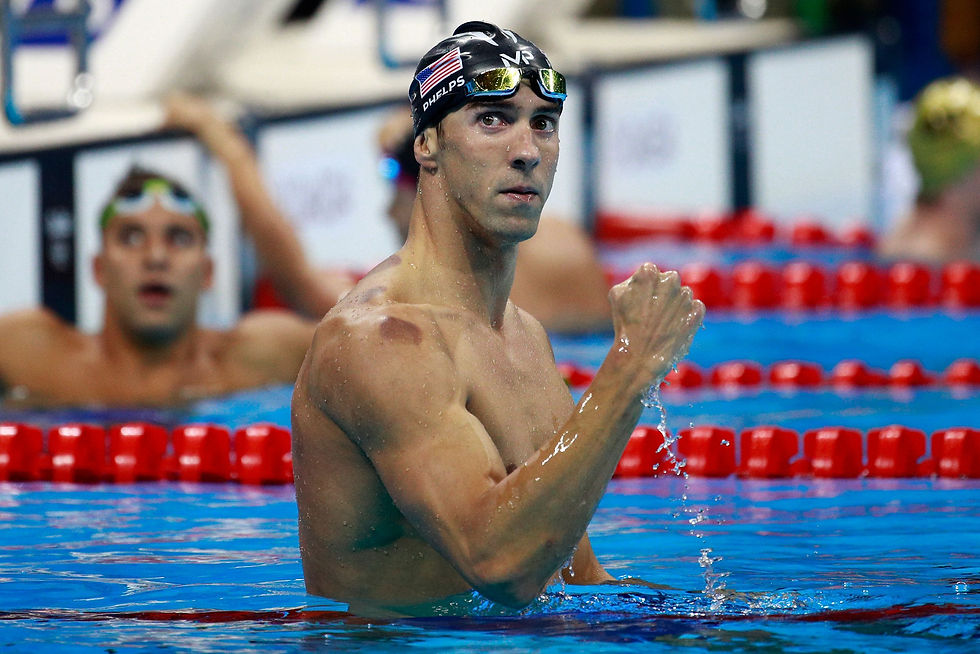Common Misconceptions About Sports Performance
- FitnessFirstAcademy

- Sep 6, 2024
- 3 min read

In the realm of sports performance, success often hinges on those pivotal moments that can turn a game. Whether it's a split-second reaction, a burst of speed, or the ability to anticipate a play, these factors can make or break an athlete's performance. But achieving an edge over competitors requires more than just grueling workouts. It necessitates a nuanced understanding of sports performance principles and the debunking of common misconceptions.
Misconception 1: More is Always Better
While training is undoubtedly crucial, it's important to recognize that excessive training can lead to overtraining, a condition that can significantly hinder performance. Overtraining can manifest in various ways, including:
Physical consequences: Decreased performance, increased risk of injury, fatigue, hormonal imbalances, and weakened immune system
Mental consequences: Mood disturbances, decreased motivation, sleep disturbances, difficulty concentrating, and burnout
To optimize performance, athletes must prioritize rest and recovery. This involves listening to their bodies, scheduling adequate rest days, following structured training plans, varying workouts, tracking progress, fueling properly, managing stress, and taking breaks when necessary.
Misconception 2: No Pain, No Gain
While discomfort is an inherent part of training, it's essential to differentiate between good pain and bad pain. Pushing through pain can increase the risk of injury and hinder long-term progress.
Good pain: Mild soreness or fatigue that subsides after rest.
Bad pain: Persistent pain, discomfort that interferes with daily activities, or pain that worsens with activity.
Athletes should prioritize proper form, listen to their bodies, and seek guidance from qualified coaches or trainers to ensure they are training effectively and safely.
Prioritizing Your Body
Listening to your body is paramount in achieving optimal sports performance. Don't hesitate to adjust your training intensity when necessary. By tapering off when needed, you allow your body and nervous system to recover and prepare for future challenges.
Misconception 3: Supplements Are Essential for Performance
While supplements have gained popularity in the sports world, it's crucial to understand that a balanced diet provides the essential nutrients most athletes need. Rather than investing in costly supplements with limited scientific evidence, focus on consuming a variety of whole, nutritious foods.
The Risks and Limitations of Supplements
The supplement industry is not as tightly regulated as other industries, posing potential risks for athletes. Contaminated supplements, often containing trace amounts of anabolic steroids or other substances, can have negative consequences. To mitigate these risks, consider purchasing supplements certified by organizations like NSF International.

Key Points:
Prioritize a balanced diet: Ensure you're consuming a variety of fruits, vegetables, whole grains, lean proteins, and healthy fats.
Research supplements carefully: If you decide to use supplements, choose reputable brands and products that are certified by trusted organizations.
Consult with a healthcare professional: Discuss any supplement use with a doctor or registered dietitian to ensure it's appropriate for your individual needs.
Misconception 4: Stretching Prevents Injuries
While stretching is often touted as a panacea for injury prevention, the reality is more nuanced. Static stretching, which involves holding a stretch for an extended period, may have limited effectiveness in preventing injuries. Instead, focus on dynamic warm-ups that mimic the movements of your sport.
Effective Warm-Ups and Cool-Downs
Warm-up: Incorporate light cardio, mobility drills, and sport-specific movements to prepare your body for activity.
Cool-down: Engage in static stretching after your workout to improve flexibility and aid in recovery.
Misconception 5: Talent is the Only Factor for Success
While natural talent can provide a foundation, it's hard work, dedication, and proper training that ultimately determine success. Athletes like Chris Paul, who was often overlooked due to his smaller stature, have proven that perseverance and relentless effort can overcome perceived limitations. Paul's exceptional court vision, basketball IQ, and defensive prowess are a testament to the power of hard work and strategic thinking.

Misconception 6: Sports Drinks Are Always Necessary
Sports drinks can be beneficial during intense, prolonged activities (lasting more than one hour), but for most workouts, water is sufficient. Excessive consumption of sports drinks can lead to excessive sugar intake.
Misconception 7: Strength Training is Only for Bodybuilders
Strength training offers numerous benefits for all athletes, including increased power, speed, agility, and injury resilience. Incorporate exercises like squats, deadlifts, bench presses, and rows into your training routine.
Misconception 8: Mental Toughness is Innate
Mental toughness is a skill that can be developed through training. Techniques like visualization, positive self-talk, and mindfulness can help athletes overcome challenges and maintain focus.

Misconception 9: Stronger = Better Performer
While strength is important, power is often more relevant in sports. Power is the ability to generate force quickly. Exercises like plyometrics and Olympic lifts can help develop power. Kevin Durant's exceptional athleticism is a testament to the importance of power over sheer strength.
Conclusion
By debunking these common misconceptions, athletes can make informed decisions about their training and maximize their performance. Remember, success in sports requires a combination of hard work, smart training, and a balanced approach.

About the Author
Alexander Morrow is a NASM Certified Personal Trainer, ACE Certified Personal Trainer, ACE Certified Group Fitness Instructor, NCSF Certified Strength & Conditioning Coach & ACE Fitness Nutrition Specialist with a passion for helping people reach their fitness goals. With a focus on strength training and functional movement, he believe in building a strong, capable body from the inside out. Connect with @FitnessFirstAcademyF1A on Instagram or visit www.FitnessFirstAcademy.com/blog for more training tips and inspiration.
Get Ready to Feel Strong and Powerful!



Comments